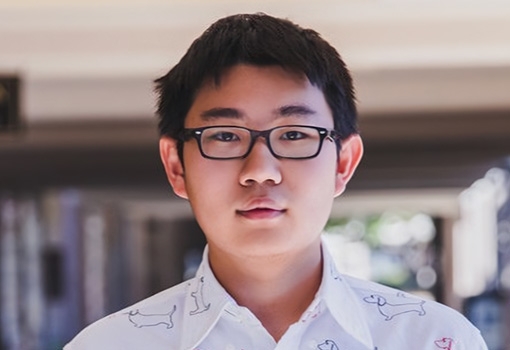Fuheng Zhao, a third-year PhD student in UC Santa Barbara’s Computer Science (CS) Department, has received a prestigious Microsoft Research PhD Fellowship. The fellowship funds two years’ worth of tuition and fees, and provides an annual cash stipend of $42,000. Fellows also receive opportunities to build relationships and collaborations with Microsoft research teams. The technology company launched the global fellowship program to identify and empower the next generation of exceptionally talented computer science researchers. According to Microsoft Research, the program received a record number of applications this year, and the thirty-six recipients should interpret the fellowships as recognition of their accomplishments and the potential for future impact Microsoft sees in them and their research.
“Receiving a Microsoft Research PhD Fellowship is a tremendous honor,” said Zhao. “Microsoft Research has always been at the forefront of technological advancements. Connecting with its research community will provide me with the exciting opportunity to gain insights into real-world problems and create innovative solutions for positive change. The fellowship will also accelerate the pace of my research and allow me to keep exploring exciting problems.”
Co-advised by distinguished professors of computer science Divyakant Agrawal and Amr El Abbadi, Zhao’s primary research interests lie in the fields of data systems, algorithms, and privacy. His work involves performing data summarization — which refers to simplifying generated data in an easily comprehensible and informative manner as efficiently and privately as possible.
“Data summarizations should help systems and applications learn critical information and keep an individual user’s information safe and confidential,” said Zhao, who received the CS Department’s 2021-’22 Outstanding Publications Award. “I believe that efficient and private data summaries are critical components in the next-generation of big data management systems and data-intensive applications.”
Zhao started at UCSB as an undergraduate physics major, but he transferred into CS once he discovered his passion for computing. After completing his bachelor’s degree in computer science, he enrolled in UCSB’s CS PhD program because of his interest in databases, an area in which Agrawal and El Abbadi are considered leaders in the global community. He also immersed himself in the university’s spirit of innovation and collaboration, which has led to him work on projects with computer science assistant professor Yu-Xiang Wang, an expert in machine learning and privacy, as well as with computer science assistant professor Arpit Gupta, an expert in networking systems.
Barely into his third year of the PhD program, Zhao has already had three publications published at top conferences. Two papers were selected by one of the premiere database events, the Very Large Data Bases (VLDB) Conference, while the third was accepted by the top machine learning conference, the Neural Information Processing Systems (NeurIPS) Conference.
“Fuheng is amazing! He has incredible insights and is very hard working with diverse interests,” said El Abbadi, a Fellow of the Institute of Electrical and Electronics Engineers (IEEE), the American Association for the Advancement of Science (AAAS), and the Association for Computing Machinery (ACM). “He is strong theoretically, has a keen systems sense with a special talent for identifying practical problems that have not been addressed adequately, and has a knack for developing impressive and elegant solutions.”
In his PhD dissertation, Zhao is addressing an important problem of data summarization over large amounts of data, extracting key properties of big data that are critical for large-scale data analysis and building machine learning models.
“There is a large amount of prior research on this topic, but Fuheng’s work stands apart because the algorithms he has developed can be readily used in the context of large-scale databases that power internet-scale applications at Google, Facebook, and Amazon,” explained Agrawal, a Fellow of IEEE, AAAS, and ACM, who added that Zhao's selection was a testament to the quality of UCSB's Computer Science Department “This fellowship not only signifies the strength of the computer science graduate program at UCSB, but also establishes that our undergraduate program is equally strong.”
Behind the support of his co-advisors, Zhao says that his research is aimed not at receiving short-term rewards, but rather on solving real-world problems that he finds exciting and intriguing. He is inspired by impactful works like the Bloom filter, a probabilistic data structure, conceived in 1970, that is still used to rapidly and memory-efficiently determine if an item is present in a dataset.
“I hope that my research will positively impact users’ productivity, minimizing system-resource costs, and protecting our privacy and rights,” he said. “I will continue exploring data summarization in-depth to advance the frontier and broaden my work’s scope to constructively impact other areas, such as machine learning and fairness.”
Since its creation in 1999, the Microsoft Research PhD Fellowship program has supported more than seven hundred fellows from around the world, many of whom have gone on to work at Microsoft or elsewhere within the technology industry, or accepted faculty positions.

PhD student Fuheng Zeng, recipient of a Microsoft Research PhD Fellowship
